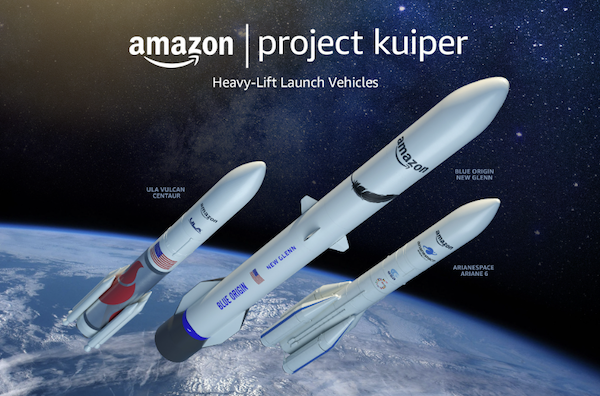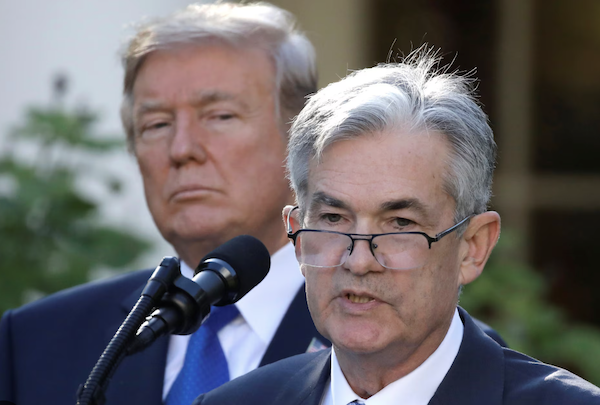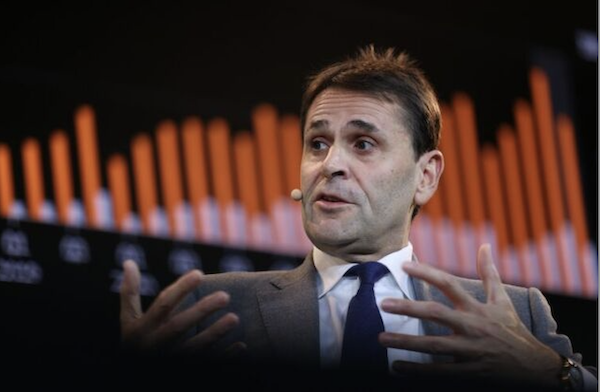Market scorecard
US markets ended the day in the green after a choppy session driven by political drama - again. President Trump floated the idea of firing Jerome Powell during a chat with House Republicans, which the market didn't like. More on that below.
In company news, Bank of America slipped 0.2% after delivering mixed numbers for the second quarter, where earnings beat and revenue missed. Elsewhere, Nvidia CEO Jensen Huang was in Beijing, praising China's AI progress and the work done by groups like DeepSeek.
Izolo, the JSE All-share closed up 0.05%, the S&P 500 rose 0.32%, and the Nasdaq was 0.25% higher.
Our 10c worth
Byron's beats

This week, a SpaceX Falcon 9 will launch 24 Amazon Kuiper satellites into orbit. What an interesting turn of events. Amazon's Project Kuiper, a direct Starlink competitor, is heavily reliant on SpaceX to get their satellites into the sky. SpaceX, of course, owns Starlink.
Let that sink in. SpaceX is selling an essential service, that probably couldn't be offered by any other business at such scale, to one of its biggest potential competitors.
What does that tell you? It probably means that Starlink is not too fazed about the competition. It is going to come at some stage, one way or another. SpaceX may as well make money from Project Kuiper while they need the service. I like that mindset.
What makes this story even juicier, is that Musk and Bezos are fierce space rivals. Musk must be feeling smug.
Starlink currently has 8 000 satellites in orbit, and Project Kuiper is planning on getting 1 600 out there by 2026. This is going to be a great outcome for the consumer.
Michael's musings

I was very critical a few years ago when certain politicians were calling for the nationalisation of the Reserve Bank. The SARB is technically private, but the government controls it, and the private shareholders get a paltry annual dividend. Even though nothing operationally would change by nationalising the SARB, just the idea that it would be less independent would be bad.
It is very important that central banks are completely independent, because if politicians get their way, they will happily take short-term stimulus in exchange for long-term inflation. The hyperinflation in Turkey, Argentina and Zimbabwe, come to mind when I think of what happens when politicians mess with monetary policy.
In the US, Trump has been raging against Fed Chair Jerome Powell for a while because he feels that US interest rates have been falling too slowly. The Fed is not cutting rates any faster because US inflation isn't low enough.
An inflation report from Tuesday showed that prices rose slightly, making it even less likely for an interest rate cut in September. A big contributor to the rise in US prices came from imported goods. A combination of new tariffs and a weaker dollar made imports more expensive. Both those factors are a result of recent White House policies. The irony.
Yesterday, a senior White House official leaked that Trump will try to fire Powell. The market very swiftly made its feelings clear. The price of gold jumped, the US stock market dropped, US bonds got more expensive and the dollar weakened (the Rand gained around 12c almost instantly). As quickly as the leaked news surfaced, Trump said it was fake and that he doesn't plan to fire Powell. Maybe the White House was testing the waters to see what would happen?
The reality is that if politicians are doing their jobs properly, interest rates will drop on their own. A well-run government and economy naturally leads to lower interest rates and better economic growth.
Bright's banter

ASML, the maker of photolithography machines to make semicondoctors reported second-quarter results ahead of expectations, with revenue of EUR7.7 billion and net profit of EUR2.3 billion, both beating analyst forecasts. Bookings came in strong at EUR5.5 billion, also topping estimates.
However, the outlook was less upbeat with third-quarter revenue guidance (between EUR7.4 and EUR7.9 billion) falling short of expectations. ASML also flagged that growth in 2026 is not guaranteed, citing macro and geopolitical uncertainty, despite strong fundamentals from AI clients.
The company continues to ride the AI wave, with its EUV machines creating cutting-edge chips for customers like Nvidia, Apple, and TSMC. One High NA machine, ASML's next-gen tool, was shipped in Q2. The new CEO will have to ship more than that to get investors excited about this company.
Nvidia sits at the centre of the AI revolution, from designing the chips, owning the software ecosystem, and setting the pace for innovation. ASML is a vital enabler, but Nvidia owns the demand. Over the past five years, Nvidia has soared 1 564%, while ASML is up 91%, a staggering gap that reflects who's capturing the real value. We would've been silly to fight that kind of momentum, so we didn't. We bought, we held, and we're happy we did.
Linkfest, lap it up
This iPhone feature could save your digital life. Stolen Device Protection makes it way harder for thieves to access your sensitive info - If you haven't turned it on yet, do it now.
Negative news headlines are designed to get clicks. Sometimes the best thing for your investment journey is to ignore all the noise - Bad advice is everywhere.
Signing off
Asian markets opened mostly in the green this morning, taking the lead from Wall Street's upbeat session. Gains were seen across Australia, Japan, Hong Kong, mainland China, and Taiwan. However, India and South Korea bucked the trend, with their benchmarks slipping slightly.
In local company news, Mpact expects a mixed half-year, with revenue up around 3% thanks to a 7% lift in paper sales. This was driven by stronger container board volumes locally and abroad. But weak consumer demand and economic uncertainty are taking a toll, with headline earnings per share expected to drop between 19% and 28%.
US equity futures are slightly lower pre-market. The Rand is hovering at around R17.86 to the US Dollar.
Earnings are on deck today from TSMC and our model portfolio stalwart, Netflix.
Have a good one.